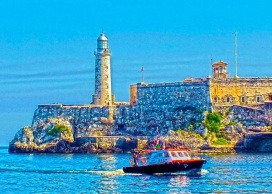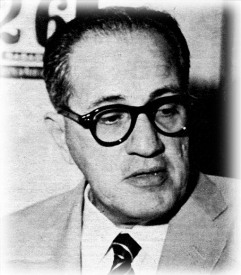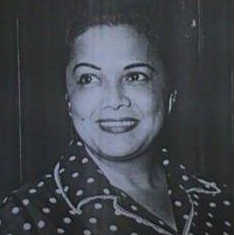
Havana ephemeris. September 19th
1800. Baron Alejandro de Humboldt arrives in Havana.

He was a notable German naturalist, founder of Comparative Scientific Geography, creator of Plant Geography and Climatology. He also studied Mineralogy, Speleology and other sciences. He was in Cuba twice. He carried out numerous investigations in the tours that he made through the Cuban territory. Later he wrote a book entitled "Political Essay on the Island of Cuba."
Because of his work, he is considered the second discoverer of Cuba.
1827. José Fornaris dies in Havana.

He was the most popular singer of the life of the Indians. His verses were known in different parts of Cuba and many of them were set to music.
In 1835 he published Los Cantos del Siboney which achieved extraordinary success. He gained great popularity not only for his quality as a versifier, but essentially for being a spokesman for the patriotic sentiments of the Creoles.
He also dedicated his talent to literature and journalism. He wrote essays that were reflected in different publications. He composed the lyrics of the song La Bayamesa that was sung on March 27, 1851 in front of the window of the house of Doña Luz Vázquez y Moreno, in the city of Bayamo.
He was born in the city of Bayamo on March 18, 1827.
1901. Pelayo Cuervo Navarro is born in Havana.

He was a revolutionary fighter and political critic of the tyranny of Fulgencio Batista. He stood out as a patriot and was part of the Cuban People's Party (Orthodox). He also served as a senator.
He was assassinated on March 13, 1957, after a brutal beating by members of the armed forces of the Batista dictatorship. The elimination of him was part of the repression unleashed against the opponents of the dictatorship, after the assault on the Presidential Palace carried out by the University Directory.
1918. Dominica Verges González is born in the town of Tapaste, then province of Havana.

In his professional work, he developed an outstanding career as a performer of traditional Cuban music. During his extensive artistic career, he sang with septets and orchestras of recognized prestige in the national musical scene, among which the Charanga Típica Cubana stands out. Numerous sones, danzones and danzonetes appeared in her varied repertoire.
In the seventies, he actively participated in the Benny Moré music festivals, in the traditional Trova and danzón festivals, held, respectively, in the country. The last stage of his musical life, before his retirement, he performed with the Charanga Nacional de Concierto, directed by the pianist and arranger Guillermo González Ruvalcaba.
She was one of the most outstanding performers of her time and became a genuine representative of an entire stage of Cuban popular music.
His death occurred in Havana on January 12, 2002.
1996. In Havana, a tribute is paid to the members of the Sixth Caravan of the Pastors for Peace.

The Carlos J. Finlay Order is given to Lucius Walter and other members of the Caravan who fasted for life in the United States as a protest against the measures that tried to prevent them from transferring their solidarity cargo to Cuba for the sector of the medicine in the country.
Commander in Chief Fidel Castro, speaking at the activity, stated: “They have just staged what is possibly the largest fast in history, in which they were deprived of essential food for 94 days.
I try to remember if there has been a major fast, and I would say yes: a moral fast, moral fasts that have lasted millennia, that have lasted centuries. What was slavery but a gigantic moral fast? What is exploitation, what is poverty, the sufferings imposed on them by men, if not enormous moral fasts?...”
2005. . In the Sports City in Havana, the national medical graduation ceremony is held and the internationalist contingent of doctors specialized in disaster situations and serious epidemics "Henry Reeve" is officially constituted.

When presenting considerations about those who reached the status of doctors, Commander in Chief Fidel Castro details: "Graduating as a doctor is opening the doors of a long road that leads to the noblest activity that a human being can do for others."